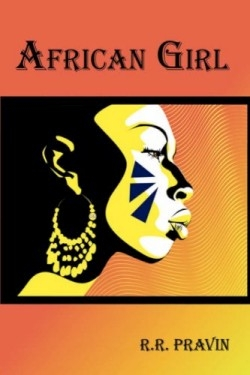African Girl
The quest for racial equality and human rights ties together disparate elements in the highly original speculative novel African Girl. The story begins with a little girl named Lea living in the fictional country of Nathan which could well be modeled on South Africa. The year isn’t noted because time’s rules have been collapsed in such a way that Abraham Lincoln and Nelson Mandela could be contemporaries. Fantasy takes over from the implied tone of social realism and readers must jettison narrative expectations to allow for a wider range of developments. The action shifts to a place slightly similar to the contemporary United States except terrible genocide of black slaves is taking place in Mississippi and Texas.
Nelson Mandela and Lea’s mother Mia are sent to the U.S. as slaves though they escape and organize the resistance. Lea is placed with a non-prejudiced white family there who raise her to adulthood against the prevailing sentiment of fervent support for discrimination and institutionalized racial hatred ultimately sacrificing their own livelihoods to protect her. Eventually Abraham Lincoln who is running for President in the 1971 elections on a platform of abolition makes common cause with the undercover provocateur Mandela and all the separated characters are independently drawn to a common climax in New York City on inauguration day.
Though the Mandela in this novel is not limited by the words and actions of the real Nobel Prize winner Pravin does a nice job of showing what it is like to hold on to principles through a decades-long struggle filled with little victories and periods of despair. While imprisoned the character writes in his journal: “What happened to dreams which come true? All I know is nightmares are common visions. Where has hope gone to? All I know is it has forsaken us. Where is God? All I know is he is on vacation.”
Given the unconventional conflation of time periods moves between continents creative historical revision and a light dose of the supernatural in the way of spirit visitation Pravin makes readers responsible for sorting out structure and events in a way that will frustrate some but stimulate others. Word choice and exposition on the theme of discrimination reflect a precocious thinker of notable future promise yet the ambitious vocabulary leads to inadvertent misstatements though intended meanings are generally apparent. Each chapter concludes with the superfluous tag “The End.”
This first work of fiction from R.R. Pravin a Singaporean teenager shows a freewheeling imagination at work and a social conscience overflowing with compassion for underdogs. African Girl is the kind of experimental story which works fine if the reader follows with a loose grip on the threads putting together a series of impressions rather than examining the structure closely for holes. An interesting effort from a very young writer.
Reviewed by
Todd Mercer
Disclosure: This article is not an endorsement, but a review. The publisher of this book provided free copies of the book and paid a small fee to have their book reviewed by a professional reviewer. Foreword Reviews and Clarion Reviews make no guarantee that the publisher will receive a positive review. Foreword Magazine, Inc. is disclosing this in accordance with the Federal Trade Commission’s 16 CFR, Part 255.

